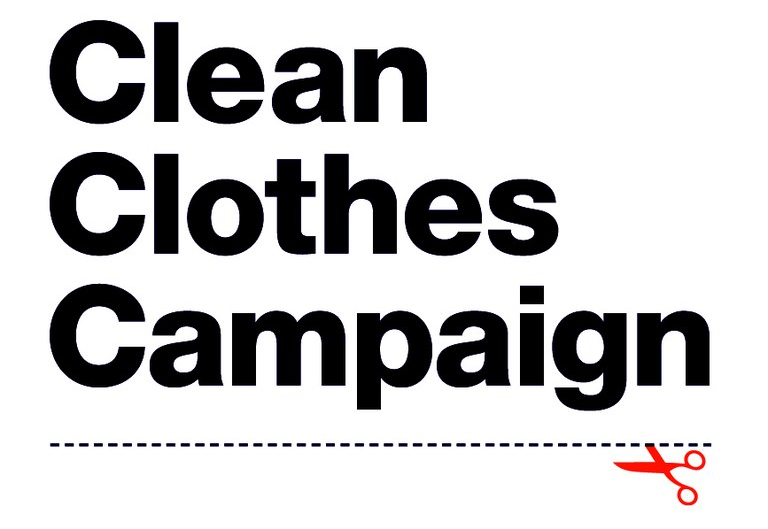Search results
190 results
Sort by:
BLOG - Big brands have mistreated their workers throughout the COVID-19 crisis
Stark figures from the Clean Clothes Campaign show that garment workers are owed between 2.42 and 4.38 billion GBP in unpaid wages from the first three months of the Covid-19 pandemic alone.
BLOG - Brands are weathering the pandemic. Garment workers are not
As researchers and advocates working to improve labor rights in the garment industry, we are used to heartbreaking stories. But what we are seeing during the pandemic is a new level of despair among workers, as widespread loss of jobs and income robs them of the ability to feed their families.
BLOG - Former workers of Neo Trend remain empty-handed after 14-month-long engagement with Ethical Trading Initiative and member brand Next
Turkish garment factory Neo Trend Textile closed officially on 1 July 2021 due to a loss of orders in the COVID-19 pandemic.
BLOG - Garment workers cannot foot the bill for the pandemic
With shops closing and people staying at home, the pandemic has changed how we shop but also how garment workers live.
BLOG - Is Your Brand Paying Its Share to Reduce Bangladesh Workers’ Wage Despair?
Garment worker protests, a brutal police crackdown, worker deaths, arrests, and worker repression, and finally an official minimum wage announcement that is far below living wage levels.
BLOG - Leicester's coronavirus lockdown is no surprise to its garment factory workers
As the UK’s first local coronavirus lockdown was imposed in Leicester earlier this week, another shocking story joined it in the headlines.
BLOG - Boohoo, Leicester’s factories exemplify the shady garment sector
Leicester is the UK’s garment hub, and 75% of city-wide production is for Boohoo, a brand valued at $4.3 billion. The brand has faced several allegations of workers’ rights violations over the years, with campaigners raising concerns that many of their cut-price clothes are produced under the conditions of modern slavery.
BLOG - Talk of sustainability is hollow until fashion brands pay their workers
Sustainability is the fashion buzzword brands love to promote, yet many knowingly overlook a key element: there is nothing sustainable about wage injustice that forces garment workers to live in abject poverty.
BLOG - Philip Green is the Scrooge who haunts millions of garment workers
The collapse of Arcadia in the lead-up to Christmas, and with it the demise of Sir Philip Green’s controversial reign over the UK high street, has a Dickensian feel to it.
BLOG - Rethinking MSIs: Binding Brands to Create Change
When the COVID19 pandemic hit, garment brands and retailers around the world cancelled their orders. What was to them a logical risk and cost reducing measure, meant destitution for millions of garment workers around the world.
BLOG - The devastation of COVID-19 on UNIQLO’s former garment workers
COVID-19 is brutal, indiscriminate in who it touches, however we are not all facing the same risks.Money can buy some protection and it provides choices, even as the options narrow. Garment workers, the vast majority of whom are women, have very few choices in this crisis.
BLOG - The fashion industry echoes colonialism – and DfID's new scheme will subsidise it
Is the UK governed by parliamentary democracy or big businesses?
BLOG - The fashion industry must learn from coronavirus
The new coronavirus (COVID-19) is said to have first emerged in China at the end of December 2019. Despite its far-reaching impact, COVID-19 is far from a great leveller.
BLOG - Your Brand World Cup exploitation starts with the kits
The FIFA World Cup has been built on a decade of human rights violations: whichever way you look, it’s workers from the global South who are exploited.
Label H&M PayYourWorkers
UK #payyourworkers 2020
UK #payyourworkers Nov 2020
New York #PAYYOURWORKERS action 2021
Action in New York for #PayYourWorkers week of action in March 2021
Netherlands #PayYourWorkers action
Netherlands #PayYourWorkers action March 2021
USA #payyourworkers 2021
USA #payyourworkers march 2021
Vero moda
wage assurance visual
Warwick, UK #PayYourWorkers
Action in the UK during the #PayYourWorkers action in March 2021
NGWF human chain 12 july 2020
Workers receiving wages, Myanmar
COVID-19 continues to ravage the health and livelihoods of garment workers
The global COVID-19 pandemic continues to grow and spread. Half of the world’s population is under some form of lock-down or movement restriction in order to control the spread of the novel coronavirus. Garment workers in global supply chains, who already grapple with poverty wages and precarious living situations, face increasing insecurity as factories close in response to steep drops in orders and as governments shut down manufacturing to protect public health.
